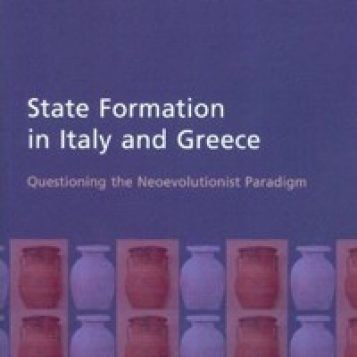State Formation in Italy and Greece: Questioning the Neoevolutionist Paradigm
by Donald Haggis (Editor), Nicola Terrenato (Editor)
This volume collects 14 papers on the process of state formation in the Aegean and in Italy. Based on a conference held at the University of North Carolina at Chapel Hill in 2003, this collection of essays offers an up-to-date and comprehensive sampler of the current discourse concerning state formation in the central Mediterranean. While comparative approaches to the emergence of political complexity have been applied since the 1950s to Mesopotamia, Mesoamerica, Peru, Egypt and many other contexts, Classical Archaeology has not played a very active role in this debate. Here for the first time, state formation processes in the Bronze Age Aegean and in Iron Age Greece and Italy are explicitly juxtaposed, revealing a complex interplay between similar dynamics and differing local factors. Most of the papers in the volume build upon recent theoretical developments in the origins and functioning of early states. Dual process theory, heterarchy, agency theory and weak state theory figure very prominently in the book and offer a new, context-sensitive kind of comparative framework to deal with different cases. Contributors include eminent experts in Etruscan and early Roman archaeology and history (Stoddart, Smith, Ammerman), Aegean archaeology (Pullen, Haggis) and in the emergence of the Greek polis (van der Vliet, Small). A full analytical index further facilitates the cross-referencing of common themes across the geographic scope of the book.


